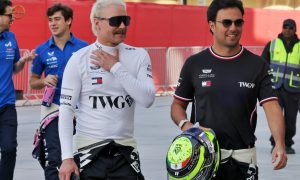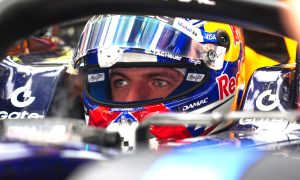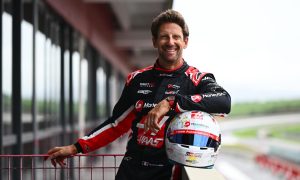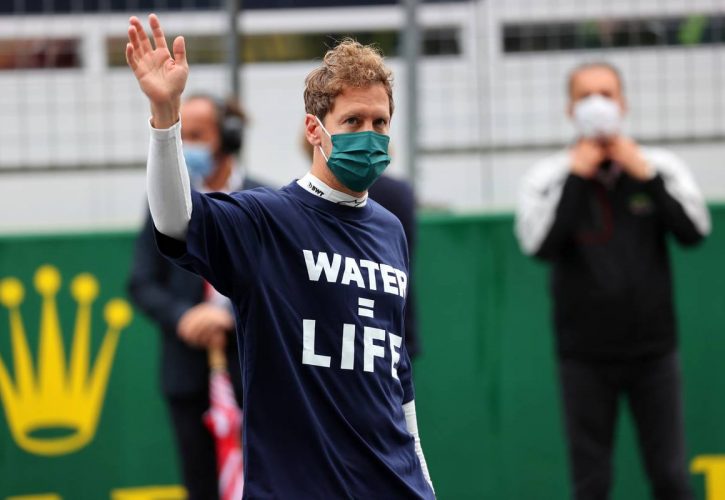
Sebastian Vettel believes that if F1 doesn't become environmentally relevant in the future, the sport will simply fade into oblivion.
Formula 1 has embarked on a green quest thanks to a number passive and active initiatives, and Vettel, a strong environmental advocate, is attentive to the sport's evolution.
In 2019, F1 announced a plan to have a net-zero carbon footprint by 2030, while its engines have been developed on a hybrid platform since 2014.
The sport's next power unit cycle that is expected to be introduced in 2026 will retain its hybrid component but will rely on bio-fuels to curtail emissions.
But Vettel believes F1's green push isn't enough and embraces a roadmap that won't ensure Grand Prix racing's healthy future.
The four-time world champion is hopeful that innovations to make F1 more sustainable and relevant will appear in the pipeline. But if they don't, the German doubts the sport will survive.
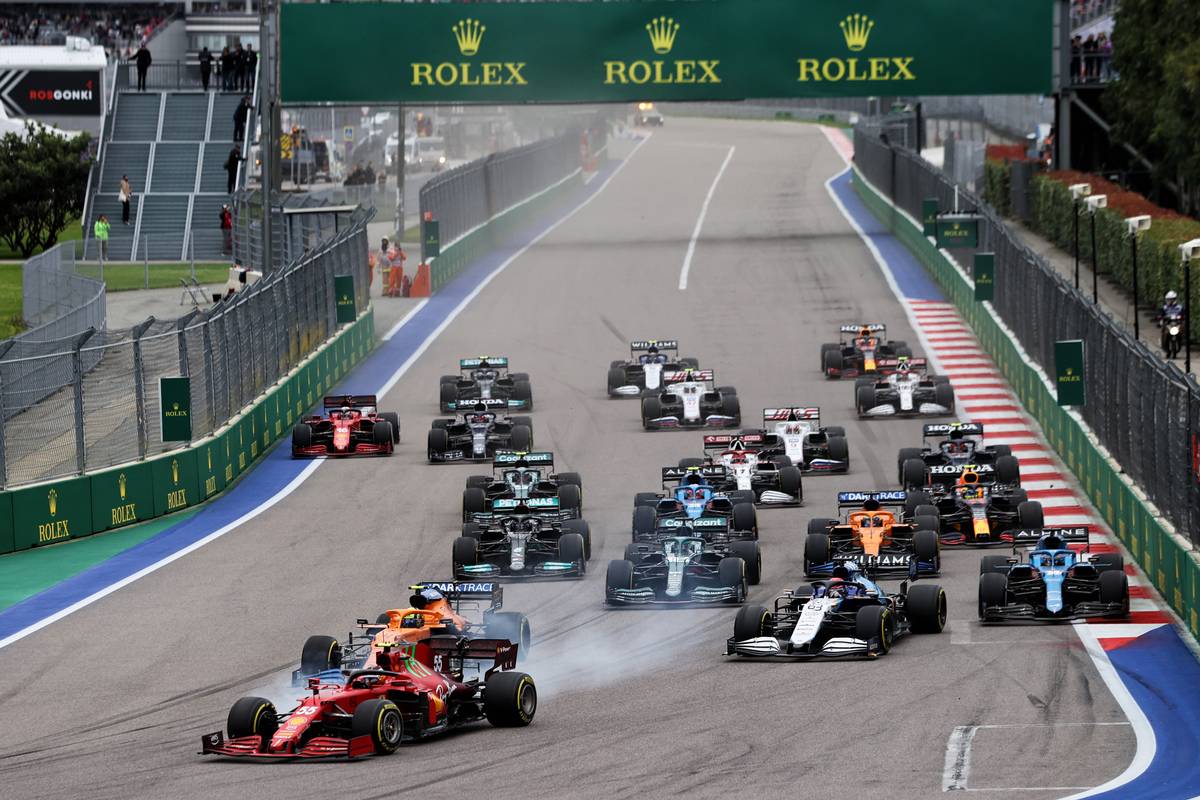
"I think we live in a time where we have innovations and possibilities to arguably make Formula 1 green as well, and not lose any of the spectacle, of the excitement, of the speed, of the challenge, of the passion," said the Aston Martin driver told the media in a wide-ranging interview.
"If anything, we have so many clever people and engineering power here, we could come up with solutions. But the current regulations, I think they're very exciting, the engine is super-efficient, but it's useless.
"It's not going to be an engine formula that you will buy on the road in two years when you decide to buy a new car, for example.
"Therefore, you can argue, what is the relevance? I think there are certain things that people are talking about for the future of the sport in terms of regulations, that could shift the change and shift into more relevant changes.
"And I feel if they come, that's a good thing for Formula 1, and it's also a vital thing.
"But if they don't come, I think I'm not so optimistic. If they don't come, I think that Formula 1 will disappear. And probably rightly so.
"We are at the stage where we know we've done mistakes, and we have no time to keep doing mistakes."
Addressing F1's bio-fuel initiative, Vettel was skeptical about the approach, arguing that E10-labeled products are not a "novelty" and that a zero-emission synthetic fuel developed with the engineering support of F1 would prove more effective and useful overall.
"I'm not a specialist exactly on all the fuels, but I will be more of a fan of synthetic fuels rather than biofuels," he said.
"With biofuels, you obviously need to source your carbon from somewhere and I think there might be some problems or some complications there.
"I think it's definitely right that Formula 1 pursues a way to find renewable fuels or a formula for synthetic fuels or usage for synthetic fuels in the future.
"But as it is now, we have an engine in place next year and we're going to have a content of only 10 percent of e-fuels in the car - which from a technology point of view is not a revolution.
"You can already buy that fuel in the pump for several years as a customer around the world. So it's not a novelty.
"I don't think it matches the sort of ambitions that Formula 1 has to be a technological leader. So we react, rather than being proactive and lead the way.
"For synthetic fuels I feel we have the same opportunity. But I am afraid we might react as well, rather than lead the way because the engines will be frozen by '22.
"There is some talk that something might change before, but frozen until at least '25 probably more looking like 2026, so that means another five years of no progress," commented Vettel.
"I think that will put our sport under huge pressure, because I feel in those five years there will be a lot of change hopefully applied around the world, and putting things under pressure that haven't applied any change."
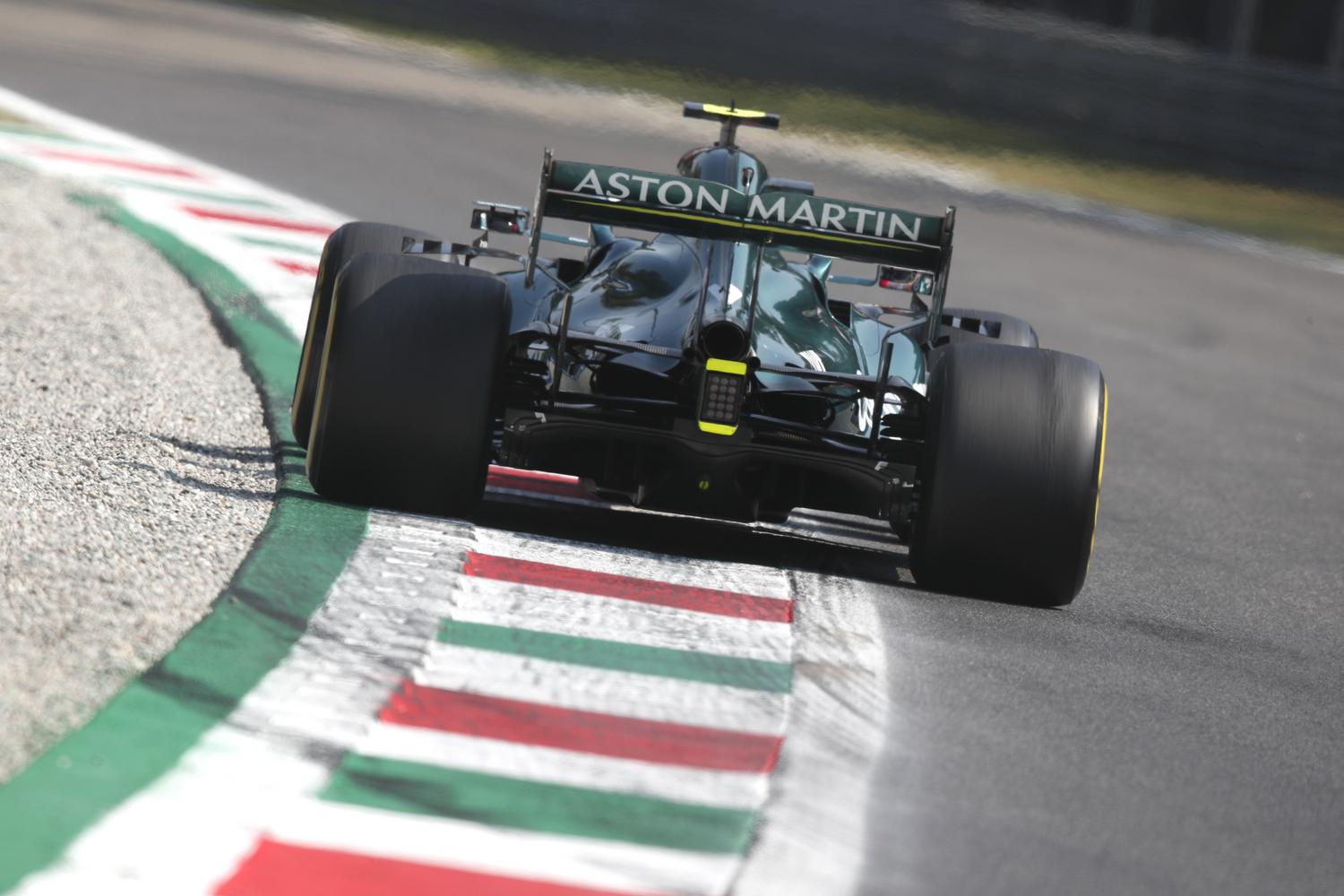
©AstonMartin
Sebastian Vettel believes that if F1 doesn't become environmentally relevant in the future, the sport will simply fade into oblivion.
Formula 1 has embarked on a green quest thanks to a number passive and active initiatives.
In 2019, it announced a plan to have a net-zero carbon footprint by 2030, while its engines have been developed on a hybrid platform since 2014.
The sport's next power unit cycle that is expected to be introduced in 2026 will retain its hybrid component but will rely on bio-fuels to curtail emissions.
But Vettel believes F1's green push isn't enough and embraces a roadmap that won't ensure Grand Prix racing's healthy future.
The four-time world champion is hopeful that innovations to make F1 more sustainable and relevant will appear in the pipeline. But if they don't, the German doubts the sport will survive.
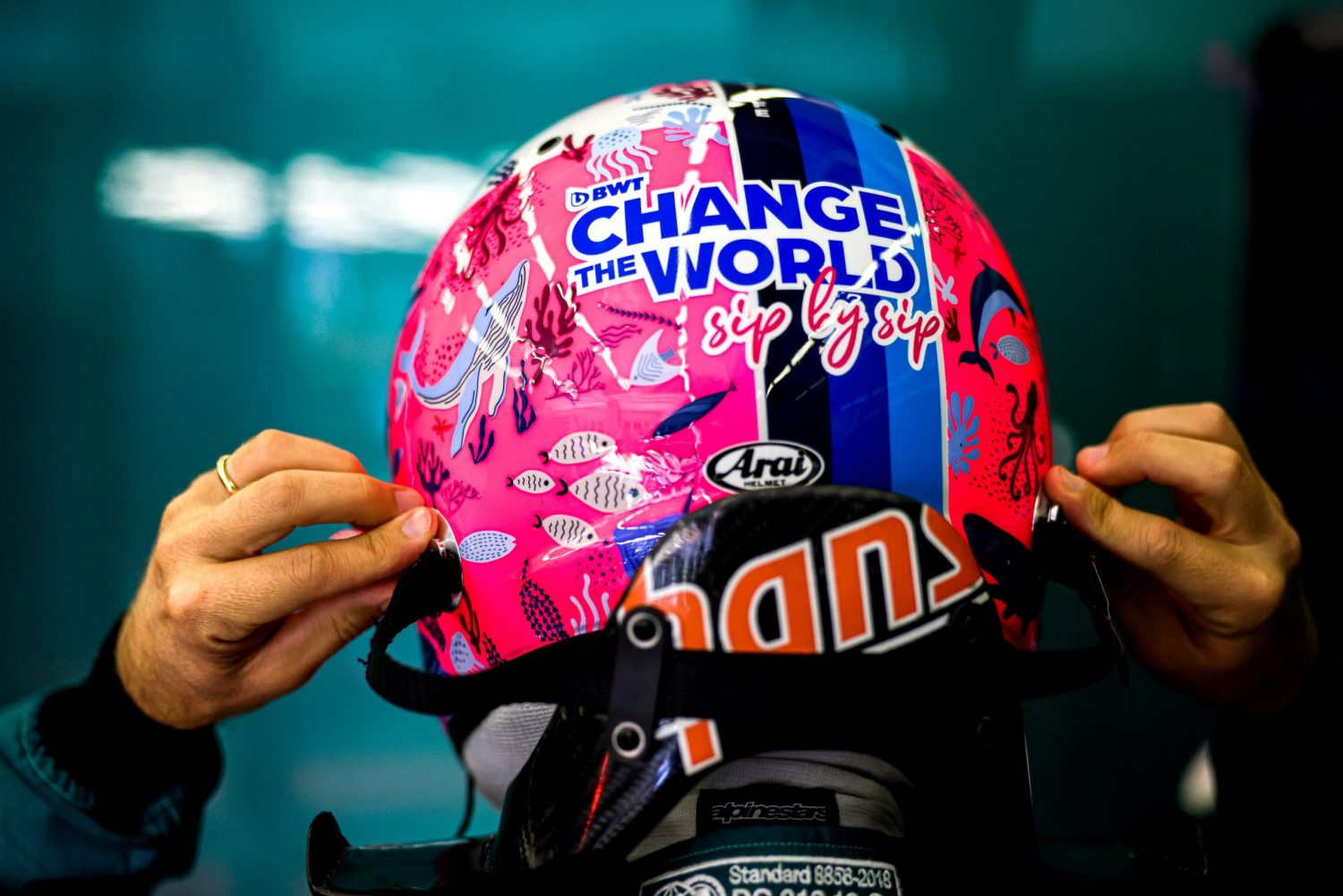
"I think we live in a time where we have innovations and possibilities to arguably make Formula 1 green as well, and not lose any of the spectacle, of the excitement, of the speed, of the challenge, of the passion," said the Aston Martin driver told the media in a wide-ranging interview.
"If anything, we have so many clever people and engineering power here, we could come up with solutions. But the current regulations, I think they're very exciting, the engine is super-efficient, but it's useless.
"It's not going to be an engine formula that you will buy on the road in two years when you decide to buy a new car, for example.
"Therefore, you can argue, what is the relevance? I think there are certain things that people are talking about for the future of the sport in terms of regulations, that could shift the change and shift into more relevant changes.
"And I feel if they come, that's a good thing for Formula 1, and it's also a vital thing.
"But if they don't come, I think I'm not so optimistic. If they don't come, I think that Formula 1 will disappear. And probably rightly so.
"We are at the stage where we know we've done mistakes, and we have no time to keep doing mistakes."
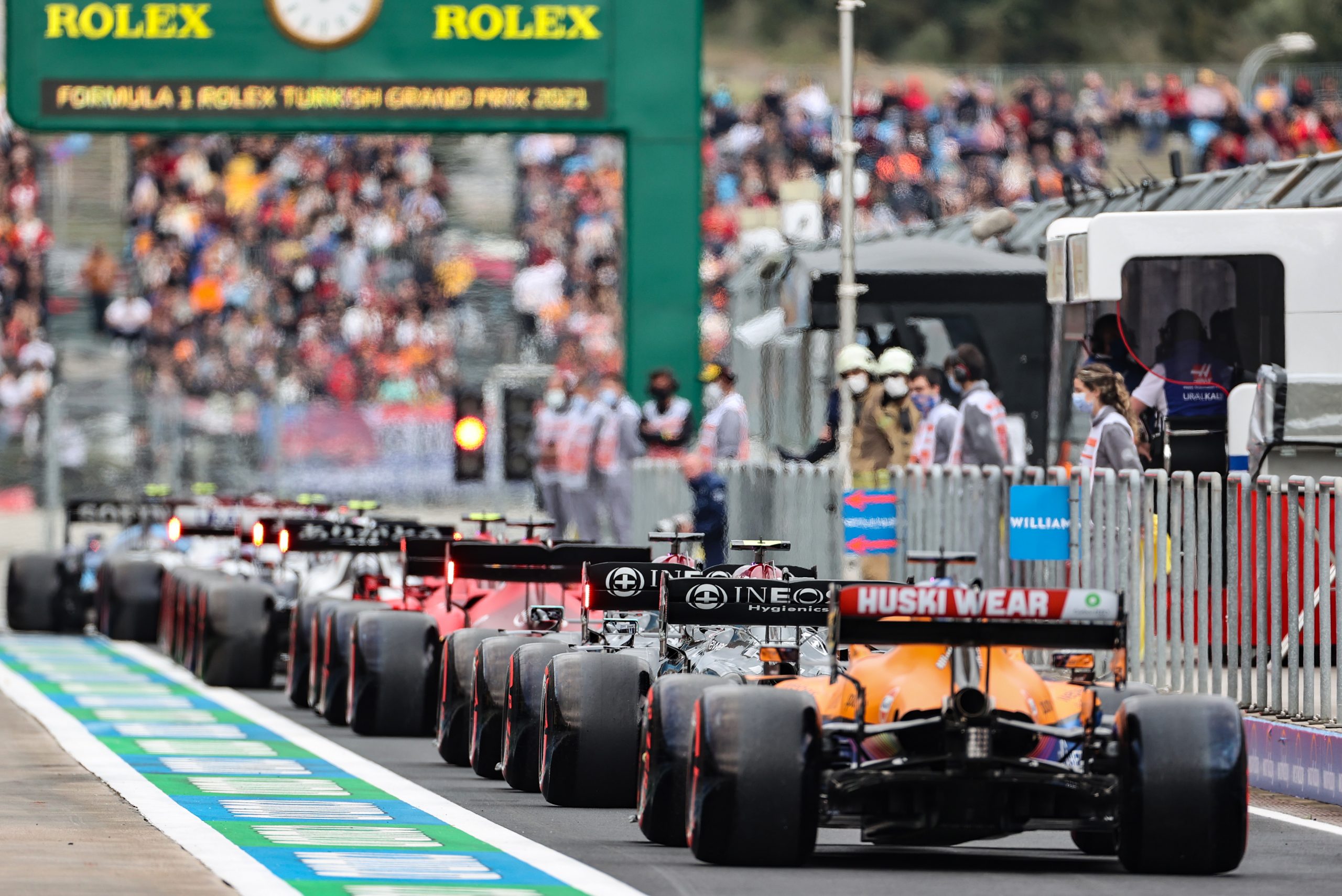
Addressing F1's bio-fuel initiative, Vettel was skeptical about the approach, arguing that E10-labeled products are not a "novelty" and that a zero-emission synthetic fuel developed with the engineering support of F1 would prove more effective and useful overall.
"I'm not a specialist exactly on all the fuels, but I will be more of a fan of synthetic fuels rather than biofuels," he said.
"With biofuels, you obviously need to source your carbon from somewhere and I think there might be some problems or some complications there.
"I think it's definitely right that Formula 1 pursues a way to find renewable fuels or a formula for synthetic fuels or usage for synthetic fuels in the future.
"But as it is now, we have an engine in place next year and we're going to have a content of only 10 percent of e-fuels in the car - which from a technology point of view is not a revolution.
"You can already buy that fuel in the pump for several years as a customer around the world. So it's not a novelty.
"I don't think it matches the sort of ambitions that Formula 1 has to be a technological leader. So we react, rather than being proactive and lead the way.
"For synthetic fuels I feel we have the same opportunity. But I am afraid we might react as well, rather than lead the way because the engines will be frozen by '22.
"There is some talk that something might change before, but frozen until at least '25 probably more looking like 2026, so that means another five years of no progress," commented Vettel.
"I think that will put our sport under huge pressure, because I feel in those five years there will be a lot of change hopefully applied around the world, and putting things under pressure that haven't applied any change."
Gallery: The beautiful wives and girlfriends of F1 drivers
Keep up to date with all the F1 news via Facebook and Twitter




